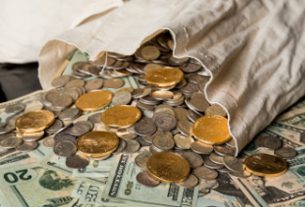Last Friday saw a stronger than expected headline GDP figure, with economic growth coming in at an annualized rate of 3.2%. That was well above estimates but, as with any other rosy economic data, pulling back the curtain to get a closer look at what’s behind it demonstrates that not all is well with the economy.
What many analysts found particularly puzzling was the fact that 70 basis points of that growth was due to an increase in inventories. That in itself isn’t necessarily a good sign, as rising inventories can often be a sign of falling consumption and businesses being forced to hold on to overpriced goods that they can’t sell. But it wasn’t clear that that was actually the culprit.
Spending on consumer durable goods fell 5.3%, and business spending weakened, but both industrial output and imports also fell, by 0.3% and 3.7% respectively. With both declining production and decreased imports, the massive rise in inventories caught many by surprise, with some chalking up the increase to statistical manipulation undertaken by the government to smooth out the seasonality that is often present due to weather-related slowdowns in the first quarter.
By conventional thinking gold should have done poorly on Friday as a result of the positive economic data, with the signs of economic growth dampening demand for the yellow metal. But gold investors in general aren’t taken in by the superficial nature of headline economic data. They saw through the numbers and realized that the reality was belied by the numbers.
Gold went from under $1270 on Friday to reach nearly $1290 in intraday trading. That’s not the reaction of traders to positive economic news, but rather the reaction of traders who realize that the powers that be are trying to pull the wool over their eyes. Gold investors understand that the economy’s foundation is weak, and they realize that gold will only continue to rise in price over the next few years even when headline economic data looks outstanding.
This article was originally posted on Goldco.





